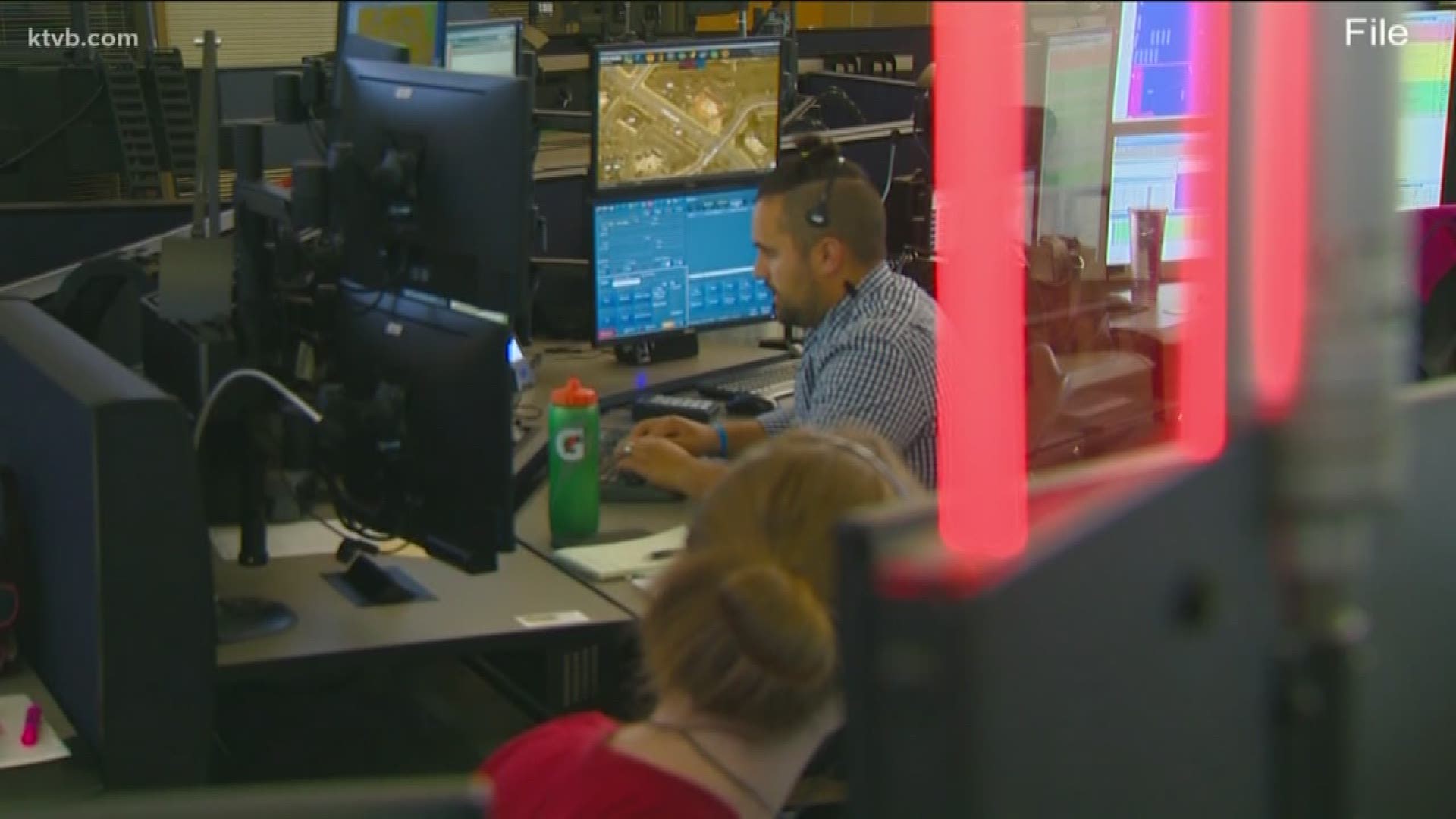BOISE, Idaho — On Wednesday, Idaho Gov. Brad Little extended the statewide stay-at-home order through the end of April.
With most Idahoans obeying the order for the last several weeks, it has had an effect on calls for emergency services.
Shawn Rayne, EMS Division Chief at Boise Fire Department, said early on they were expecting the number of calls for service to increase by as much as 150 percent. But instead, the number of calls has been lower than average.
“Our call volume has dropped over the last three to four weeks pretty steadily," he said. "It’s starting to level out a little now but we have seen a decrease in call volume.”
Normally, the department gets 120 to 130 calls per day, but in recent weeks that number has dropped to as few as 90.
Rayne said they were also expecting to see more patients with symptoms similar to the flu or COVID-19 but that hasn't been the case either.
“We really thought we would see a big uptick in people with flu-like symptoms and we really have not seen that,” he said.
Idaho COVID-19 latest: Latest news | Map of confirmed Idaho cases | Stay-at-home order details | COVID-19 resources | Testing sites | Employers hiring | Essential business list | Closings | School closings | Help nonprofits| Golf info | Full COVID-19 coverage
Between March 15 and April 16, Boise Fire transported just 19 patients who were COVID-19 positive.
The department has also seen a decrease in the number of vehicle accidents they respond to.
When it comes to law enforcement, they have seen some changes as well.
Boise Police saw a 12 percent drop in overall call volume between the week before the order started to one week later.
Neither BPD nor the Canyon County Sheriff's Office report an increase in domestic violence calls, which Sheriff Kieran Donahue said is actually unexpected.
“One thing I’m very pleasantly surprised about is that we have not seen a spike in domestic violence calls because frankly we did expect that,” Donahue said.
Deputies in Canyon County are being asked not to book people into jail, whenever possible. For misdemeanors, Donahue said they're being asked to either cite and release the person, or at the most, book and release rather than holding them in jail.
For that reason, one of the biggest changes in Canyon County is "the sheer number of people who are not being brought to jail."
This limits the number of people inside the jail should a COVID-19 outbreak occur.
Overall, the number of traffic stops in Canyon County is also lower.
Nationally, Donahue said law enforcement is also seeing a big change in illegal narcotics and the ripple effects a change in the supply chain is having.
RELATED: 'It’s been really rewarding': Boise nurses helping in California, Michigan hospitals during pandemic
"We have seen a significant drop in the loads coming across but what that’s doing is driving the price of the products that are out there up and it’s making it harder for those addicts to get their hands on it, so that creates more criminality," Donahue said. "Because a higher price means they need to do more theft, more burglaries to get the money they need to satisfy their addictions.”
More potent opiates and more accidental overdoses are some of the results of that issue.
Donahue said they're not seeing that problem specifically in Canyon County yet but he worries it's a possibility.
“What I fear is more assaults and batteries based on that," he said.
Watch more crime news:
See the latest Treasure Valley crime news in our YouTube playlist:

